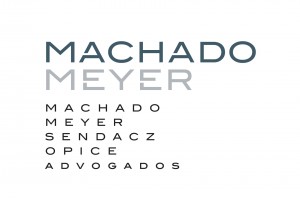Minister Hage also gives new details on the criteria for assessing the effectiveness of integrity programs
In a lecture at the 2014 Latin America Ethics Summit, in July, the Chief Minister of the Comptroller General of the Union (CGU), Jorge Hage, spoke for the first time about the rules for leniency agreements provided for in the Anticorruption Law (12.846 / 13) . The criteria will still be detailed in federal regulations, to be published by the Casa Civil. The text was written by the CGU and endorsed by the Ministry of Justice.
Hage said that companies that admit participation in the infringement will be entitled to leniency agreements; stop the illegal practice immediately; collaborate with investigations and the administrative process; assist in identifying stakeholders and provide evidence. Plaintiffs must also not have breached such agreements in the past three years.
With Law 12.846 / 13, the leniency instrument, previously only available in competition law, becomes a tool for intervention in investigations of corruption cases. The instrument offers lesser penalties to companies that voluntarily report internal crimes. The State, in turn, can bring to justice crimes that are very difficult to investigate.
The CGU holder also gave new details on how the agency will analyze the effectiveness of integrity programs (compliance) in future processes. Law 12.846 / 13 says that convicted companies may have milder penalties if they prove that they prevent corruption through these programs. This efficiency analysis will also be detailed in the regulations in the Civil House.
According to Hage, the assessment should consider senior management's commitment to preventing corruption; standards of conduct and code of ethics; conducting frequent training; the existence of widely publicized reporting channels, internal controls and disciplinary measures, and transparency in donations to candidates and parties.
The performance of companies in the face of deviations will also be analyzed. It is expected that they will promptly report the harmful act to the government and that the employees involved will be removed before notification to the authorities. Companies must also prove that management has not participated in or tolerated corruption by subordinates.
"What is more difficult to prove will be analyzed by the result [produced by the integrity measures]," said Hage, when asked how companies would eventually be analyzed while the regulation is not in force.
Controllership will also take into account the number of employees and subsidiaries; the complexity of the hierarchy; the use of consultants, commercial representatives and intermediaries, and the degree of interaction with the public sector. "Small and medium-sized companies [therefore] will not be evaluated in the same way as large corporations from the point of view of compliance," said the minister


 Machado, Meyer, Sendacz and Opice Advogados, through their practice area Compliance and Corporate Integrity, led by lawyer Leonardo Ruiz Machado, will support the Brazilian Institute for Competition Ethics (ETCO) in the actions developed by the entity with a focus on supporting the fight against corruption. The partnership was built in a meeting held with ETCO's executive president, Evandro Guimarães, on July 3, at the institute's headquarters in São Paulo.
Machado, Meyer, Sendacz and Opice Advogados, through their practice area Compliance and Corporate Integrity, led by lawyer Leonardo Ruiz Machado, will support the Brazilian Institute for Competition Ethics (ETCO) in the actions developed by the entity with a focus on supporting the fight against corruption. The partnership was built in a meeting held with ETCO's executive president, Evandro Guimarães, on July 3, at the institute's headquarters in São Paulo.
